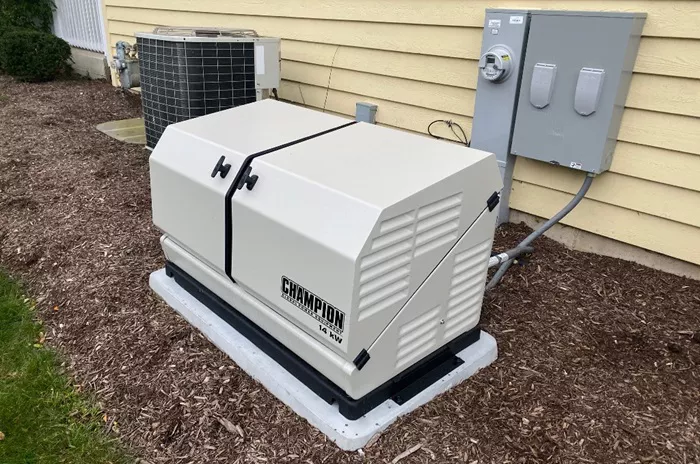Inverter generators have become a popular choice for home backup power due to their efficiency, quiet operation, and clean energy output. Unlike traditional generators, inverter generators produce stable electricity that is safe for sensitive electronics like laptops, smartphones, and medical devices.
Choosing the best inverter generator for home use depends on several factors, including power output, fuel efficiency, noise levels, and portability. In this guide, we’ll explore the key features to look for and review some of the top models available.
How Does an Inverter Generator Work?
To understand why inverter generators are better for home use, it’s important to know how they function.
Traditional Generators vs. Inverter Generators
Traditional generators produce AC (alternating current) power directly from the engine, which can result in inconsistent voltage and frequency. This “dirty” power can damage sensitive electronics. Inverter generators first generate AC power, then convert it to DC (direct current), and finally invert it back to a stable AC output. This process ensures clean, consistent electricity.
Benefits of Inverter Generators
Clean Power: Safe for electronics like TVs, computers, and refrigerators.
Fuel Efficiency: Adjusts engine speed based on power demand, saving fuel.
Quiet Operation: Runs at lower RPMs, reducing noise levels.
Portability: Lighter and more compact than conventional generators.
Key Features to Consider When Choosing an Inverter Generator
Power Output (Wattage)
Starting Watts vs. Running Watts:
Running Watts: Continuous power the generator can supply.
Starting Watts: Extra power needed to start motor-driven appliances (e.g., refrigerators, air conditioners).
For home backup, a 3,000–5,000-watt inverter generator is usually sufficient for essential appliances.
Fuel Type (Gasoline, Propane, or Dual Fuel)
- Gasoline: Most common but requires fresh fuel.
- Propane: Longer shelf life and cleaner burning.
- Dual Fuel: Offers flexibility to switch between gasoline and propane.
Noise Level
- Measured in decibels (dB).
- A quiet inverter generator operates around 50–60 dB (similar to a normal conversation).
Runtime & Fuel Efficiency
- Look for models with eco-mode to extend runtime.
- A good inverter generator should run 8–12 hours on a single tank at 25–50% load.
Portability & Weight
- Smaller models (1,000–2,000 watts) weigh 30–50 lbs and often have handles or wheels.
- Larger models (3,000+ watts) may require wheel kits for easy movement.
Parallel Capability
Some inverter generators can be connected in parallel to double the power output.
Top 5 Best Inverter Generators for Home Use
Honda EU2200i – Best for Portability & Reliability
- Power: 2,200W (1,800W running)
- Noise Level: 48–57 dB
- Runtime: 8.1 hours at 25% load
- Pros: Super quiet, ultra-reliable, lightweight (47 lbs)
- Cons: Expensive
Champion 3400-Watt Dual Fuel – Best for Versatility
- Power: 3,400W (3,000W running on gas, 2,700W on propane)
- Noise Level: 59 dB
- Runtime: 7.5 hours (gas), 14.5 hours (propane)
- Pros: Dual fuel option, remote start, good value
- Cons: Heavier (95 lbs)
Westinghouse iGen4500 – Best for High Power Needs
- Power: 4,500W (3,700W running)
- Noise Level: 52 dB
- Runtime: 18 hours at 25% load
- Pros: Long runtime, quiet, remote start
- Cons: Bulky (98 lbs)
Generac GP3000i – Best Budget Option
- Power: 3,000W (2,300W running)
- Noise Level: 58 dB
- Runtime: 5.7 hours at 50% load
- Pros: Affordable, lightweight (60 lbs)
- Cons: Shorter runtime
Yamaha EF3000iSE – Best for Heavy-Duty Use
- Power: 3,000W (2,800W running)
- Noise Level: 58 dB
- Runtime: 19 hours at 25% load
- Pros: Extremely quiet, long runtime, durable
- Cons: Expensive
How to Maintain Your Inverter Generator
Proper maintenance ensures longevity and reliability:
- Change oil regularly (every 50–100 hours of use).
- Use fresh fuel or add a stabilizer if storing for long periods.
- Clean the air filter to prevent engine strain.
- Store in a dry place to avoid moisture damage.
Conclusion
Inverter generators are an excellent investment for home backup power, offering clean energy, fuel efficiency, and quiet operation. By considering your power needs and budget, you can find the best model to keep your home running during outages.
Would you like recommendations based on specific appliances? Let us know in the comments!

